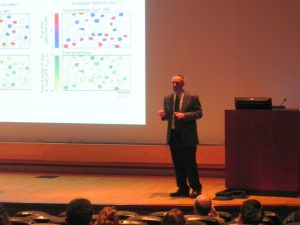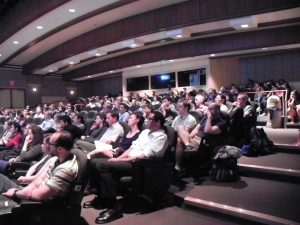The 15th Perl/UNC Neuroscience Prize award ceremony and lecture was held on Thursday, May 14th at 3PM in G202 MBRB.


CHAPEL HILL, N.C. – The UNC School of Medicine has awarded the 15th Perl-UNC Neuroscience Prize to David W. Tank, PhD, the Henry Hillman Professor in Molecular Biology at Princeton University, for the “discovery of fundamental mechanisms of neural computation.”
The Perl Prize carries a $20,000 award and is given to recognize seminal achievement in neuroscience. Six of its previous winners went on to win the Nobel Prize in Physiology or Medicine or The Nobel Prize in Chemistry. Two other Perl-UNC Neuroscience Prize recipients have won the Kavli Prize, which to neuroscientists has become nearly as prestigious as the Nobel.
William L. Roper, MD, MPH, dean of the UNC School of Medicine, presented the Perl-UNC Neuroscience Award to Dr. Tank in a ceremony Thursday May 14 at UNC’s Medical Biomolecular Research Building (MBRB). Following the presentation of the award, the 150 neuroscientists in attendance listened to the lecture “Neural circuit dynamics during virtual navigation and decision-making” presented by Dr. Tank. It was followed by a short reception on the MBRB patio.
“David Tank has been a leader in our field for many years,” said William Snider, MD, director of the UNC Neuroscience Center and chairman of the Perl-UNC Neuroscience Prize selection committee. “His work continues to advance key technologies. Most recently, he has pioneered the use of two-photon microscopy and intracellular recordings in the brains of animals in virtual reality environments.” This provided researchers new ways to study neural circuits.
Tank’s current research focuses on mechanisms of short-term memory and decision making. His studies suggest that memory is actually encoded in the dynamics of neural circuits. Uncovering the basic biological mechanisms of short-term memory has implications for millions of people, especially those with neurodegenerative conditions.